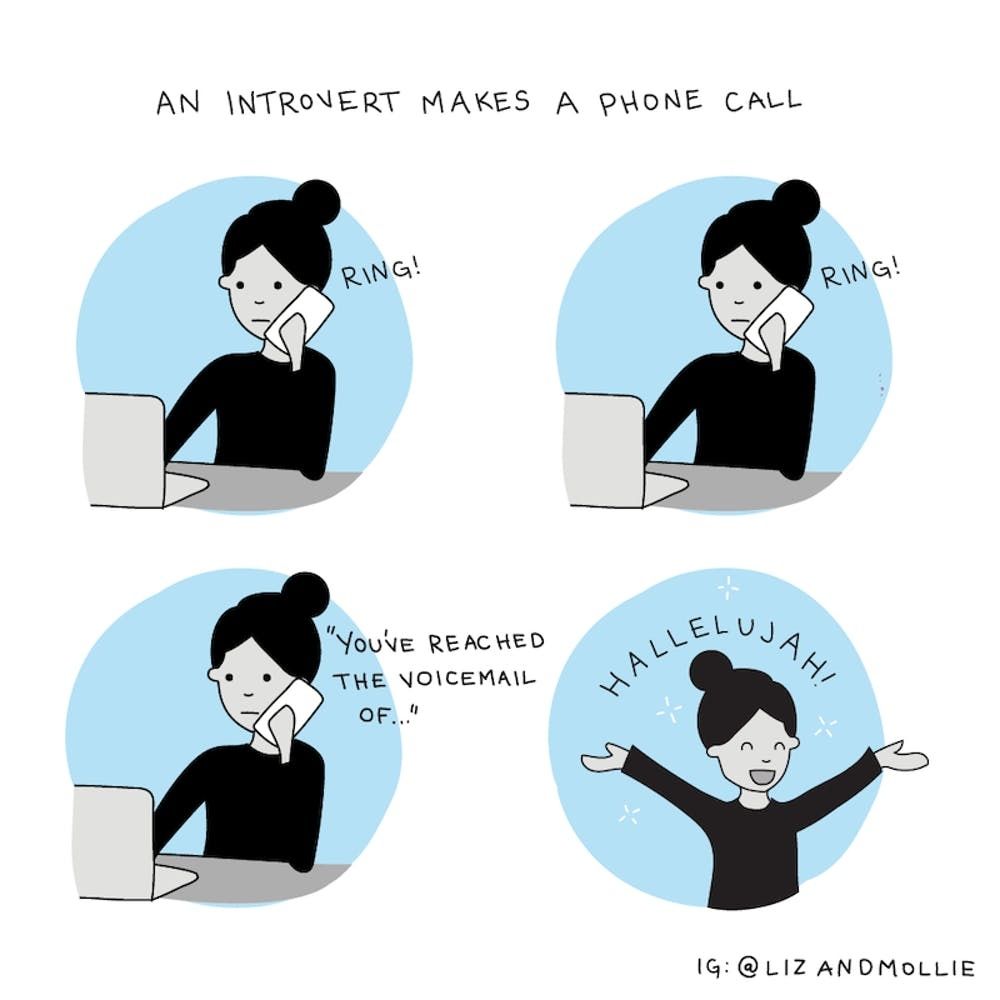Being an introvert or extrovert at work can be challenging if your boss or coworkers have different personality types. Speaking up at an all-staff meeting might be intimidating for an introvert, but sometimes those quiet qualities can benefit you in the office. Or if you’re an extrovert who works from home and craves any sort of conversation (hello, delivery people!). Faking an outgoing persona can be exhausting for some while for others, it comes naturally. We asked co-authors of the book No Hard Feelings: The Secret Power of Embracing Emotions at Work, Liz Fosslien and Mollie West Duffy, about how to navigate the workplace when you’re an introvert or extrovert.

1. For introverts: Prep for meetings ahead of time. To feel more comfortable speaking up at work meetings, spend a moment thinking about what you might say and then try to chime in during the first 10 minutes. “Once you’ve broken the ice, it will be easier to jump in again. And remember, a good question can contribute just as much as an opinion or statistic,” says West Duffy.
2. For extroverts: Try to engage with introverts in ways that are comfortable for them. “Give them time to come out of their shell, and when chatting with an introvert, let them finish speaking before you chime in,” says Fosslien. If you’re running a meeting, send out the agenda ahead of time via email so they can gather their thoughts. Try breaking into small groups to discuss ideas and report back to the larger team.
3. Extroverted leaders should figure out their emotions before speaking. Says West Duffy, “Research shows our brains respond more positively to empathetic bosses; when we feel a personal connection with a leader, we try harder, perform better, and are kinder to our colleagues.” West Duffy shares this simple breakdown to make feelings more concrete: “Because of [insert the situation], I’m feeling [your emotion] and [another emotion]. Here’s what I’m planning to do next to make it better: [insert actionable steps]. And here’s what I need from you: [insert specific details]. What do you need from me?”
4. Introverted leaders need time to recharge. Fosslien recommends taking a “Shultz hour.” “When he was in office, former secretary of state George Shultz protected one hour each week for solitary reflection with paper and pen. No one was allowed to interrupt him except the president or his wife,” says Fosslien. The solo session will help improve your mood and get you back to work refreshed.
5. Take a vacation. Really! Fosslien and West Duffy advocate in their book for taking time off from work to help us stay healthy and productive. If taking a vacation makes you squirm, try what Fosslien does: One day every week, she does not let herself schedule meetings, calls, or even social events. This “off” day lets her catch up on her work, so the rest of the week doesn’t feel quite as hassled. “If you can’t block off an entire day, try scheduling a few hours for focused work,” says West Duffy.
View this post on InstagramA post shared by Liz and Mollie (@lizandmollie) on
6. Emotionally proofread your emails. Digital miscommunication can happen so easily over text, emails, or chats. “Re-read what you’ve written before hitting send to make sure your message is clear and conveys the intended tone. A simple ‘Let’s talk,’ can make the recipient anxious. Try, ‘These are good suggestions. Let’s discuss how to work on them,'” says Fosslien.
7. Know your emotional expression tendency. Take Fosslien and West Duffy’s free emotional expression assessment quiz to better understand how you express yourself at work. People might misinterpret your silence as a lack of excitement if you are less expressive about your emotions. If you’re highly emotionally expressive, says West Duffy, people might come to you when they have exciting news, but if you’re expressing unfiltered emotions, you might unintentionally affect others around you.
RELATED: How Introverts Can Leverage Their Strengths at Work
(Cover and Illustrations via Liz Fosslien)


